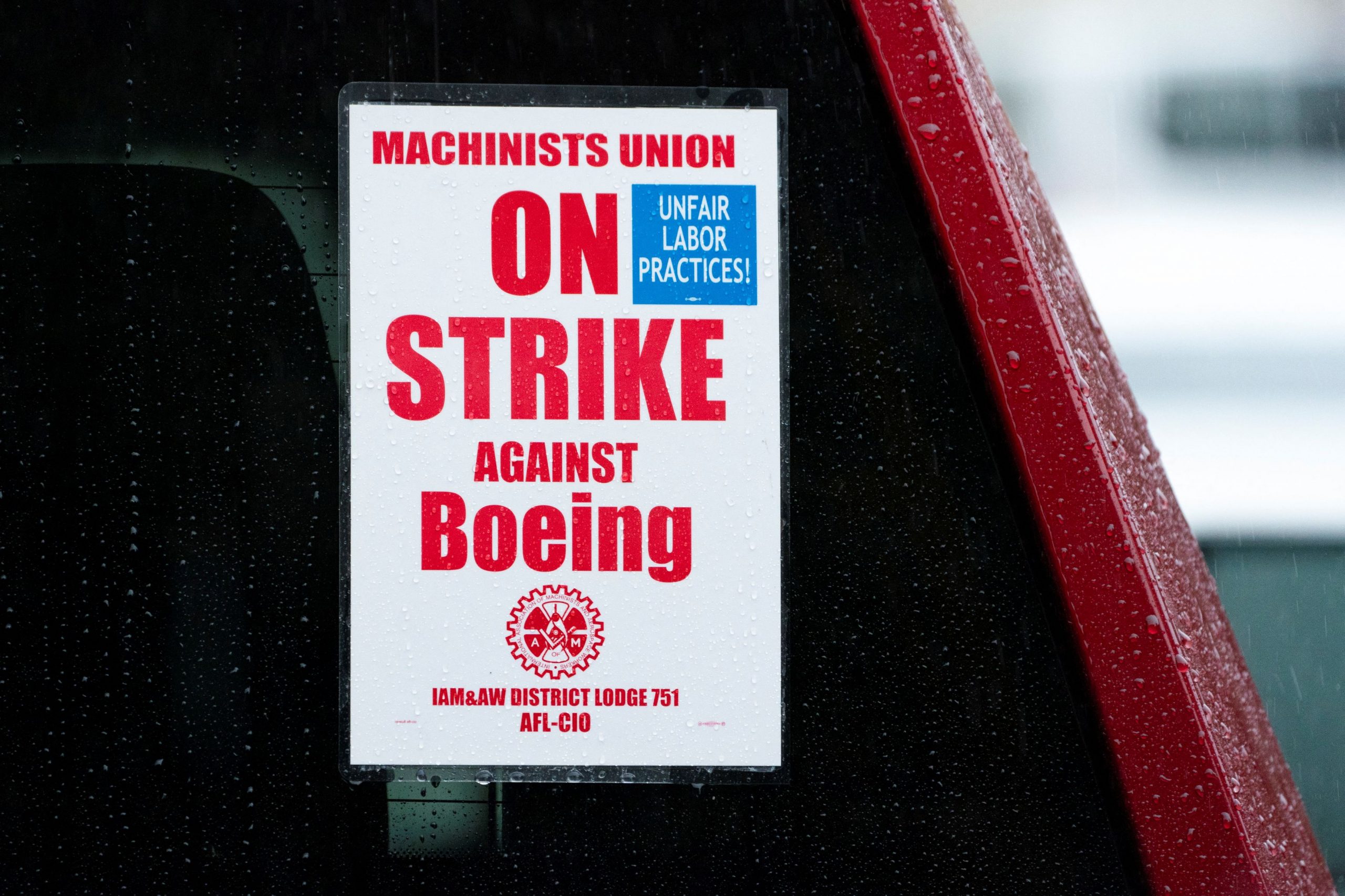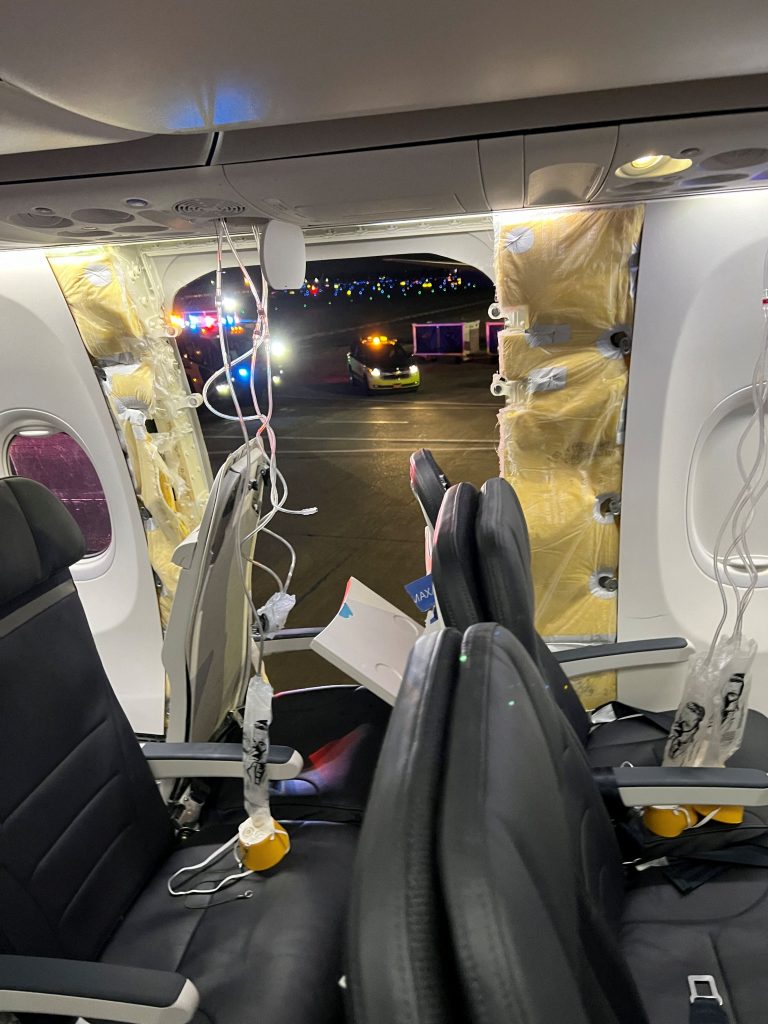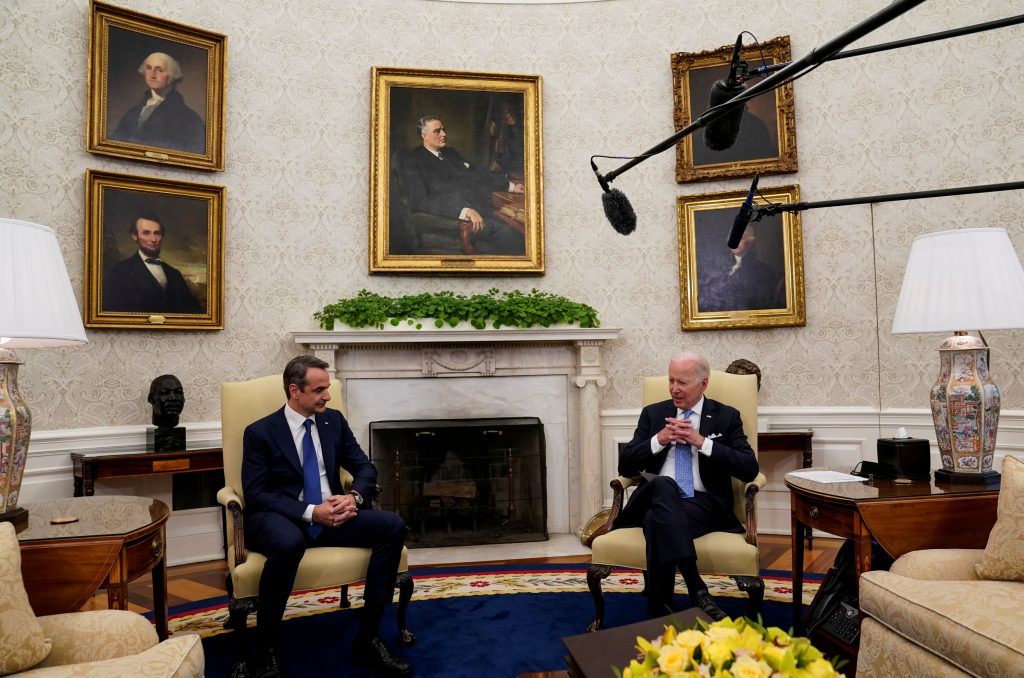Boeing’s West Coast factory workers have voted to accept a new contract, ending a seven-week strike that disrupted jet production and strained the company’s finances. The union announced a 59% approval for the agreement, which includes a 38% pay increase over four years, alleviating some of the pressure on new Boeing CEO, Kelly Ortberg, after two prior contract rejections.
According to Reuters, union lead negotiator Jon Holden expressed satisfaction, calling the agreement a victory. More than 26,000 union members voted, putting turnout near 80%.

Rain falls on a sign bearing a logo of the International Association of Machinists and Aerospace Workers District 751 as union members vote on a new contract proposal from Boeing at a union hall during an ongoing strike in Seattle, Washington, U.S. November 4, 2024. REUTERS/David Ryder
The strike, which began on September 13, involved approximately 33,000 machinists who had been demanding a 40% pay increase and the reinstatement of a pension plan that had been replaced by a 401(k) a decade ago. Although the original pension plan was not restored, the contract includes a boost to 401(k) matching contributions. Holden also mentioned Boeing’s commitment to base its next aircraft project in Seattle, marking a first-time commitment from the company before a new project’s launch.

A strike sign is attached to the truck of a Boeing worker from the International Association of Machinists and Aerospace Workers District 751 as union members vote on a new contract proposal at a union hall during an ongoing strike in Seattle, Washington, U.S. November 4, 2024. REUTERS/David Ryder
This resolution comes as a significant relief for the company, which has faced successive challenges since a door panel incident on a almost new 737 MAX in January. Ortberg, in a statement to employees, highlighted the need to work together to restore Boeing’s reputation.

Passenger oxygen masks hang from the roof next to a missing window and a portion of a side wall of an Alaska Airlines Flight 1282, which had been bound for Ontario, California and suffered depressurization soon after departing, in Portland, Oregon, U.S., January 5, 2024 in this picture obtained from social media. Instagram/@strawberrvy via REUTERS
With workers scheduled to return by November 12, production of the 737 MAX is expected to remain below the pre-strike target of 38 planes per month for some time. The work stoppage, which analysts estimate cost Boeing approximately $100 million in daily revenue, led the company to raise $24 billion to maintain its credit rating. Rebuilding relations with machinists is now a priority, as many workers have expressed frustration over wages falling behind Seattle’s rising cost of living. The new contract projects the average annual machinist pay to reach $119,309, up from $75,608, with the pay increases potentially costing Boeing an additional $1.1 billion over the contract term.


